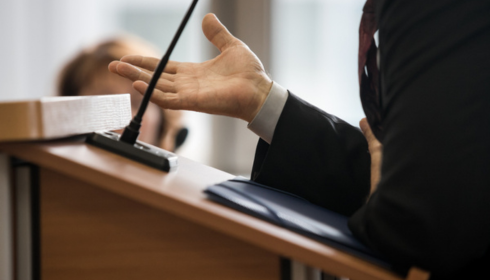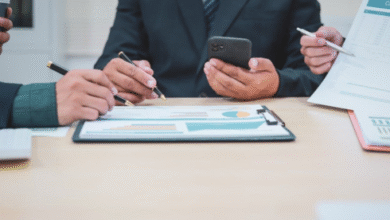When Expertise Meets the Courtroom: The Human Side of Expert Witness Defense

If you’ve ever watched a courtroom drama, you’ve probably seen the moment when an expert takes the stand. Calm, prepared, and brimming with specialized knowledge, they’re expected to shed light on complex facts that ordinary jurors can’t be expected to grasp. But what TV rarely shows is the intense preparation and strategy that goes into protecting that expert’s credibility — and that’s where the idea of expert witness defenese becomes vital.
It’s not just about having the smartest person in the room; it’s about ensuring that their knowledge is translated, respected, and ultimately trusted by everyone involved. Defense attorneys, trial consultants, and specialists often work behind the scenes to protect experts from unfair attacks or misunderstandings. It’s an art as much as a science, balancing clear storytelling with airtight factual grounding.
Why the Expert Matters More Than Ever
We live in a world where data is endless but interpretation is everything. Whether it’s a construction dispute, a financial investigation, or a high-stakes medical case, the expert is often the bridge between raw evidence and understandable truth. Jurors may not know the inner workings of an MRI machine, the chemistry of a drug, or the math behind a complex valuation, but they can recognize confidence and clarity when they see it.
That’s why entire teams focus on supporting experts. It’s about making sure their words land correctly and that cross-examinations don’t derail their testimony. In a time when even slight doubt can sway opinions, experts need not only knowledge but also protection.
The Pressure on Medical Experts
Few areas carry as much weight — or emotional baggage — as medical testimony. A surgeon explaining a procedure gone wrong, or a psychiatrist describing the nuances of mental health, can literally make or break a case. Here’s where medical expert witness defense steps in.
The role isn’t just to make a physician sound convincing; it’s to ensure that years of medical training aren’t overshadowed by legal traps or rhetorical tricks. Medical experts often face skepticism simply because their fields are so technical. Defense teams help simplify their message without watering it down, allowing jurors to feel informed rather than overwhelmed. The balance is delicate: too much jargon and eyes glaze over, too much simplification and credibility suffers.
Humanizing the Expert
One surprising truth is that jurors don’t just want to hear what an expert knows — they want to feel like they can trust them. A dry, overly academic tone can actually backfire, even if the content is rock-solid. So part of the preparation is helping experts find their authentic voice.
This might mean practicing eye contact, storytelling through case examples, or simply remembering to pause and breathe. Sometimes it’s not the grand technical detail but the small human touches that convince a jury to lean in and listen.
Where Legal Strategy Meets Storytelling
Behind every polished testimony, there’s strategy. Lawyers spend hours crafting the narrative, deciding when and how to introduce expert voices. They anticipate the other side’s counter-arguments, sometimes even rehearsing “mock cross-examinations” so the expert is never caught off guard.
And yet, despite all the planning, there’s always an element of unpredictability in live testimony. Experts need to be nimble, ready to respond to unexpected twists without losing composure. That’s why defense teams often describe their work as part coaching, part shielding, part improvisation.
The Role of Specialized Groups
In recent years, specialized organizations have emerged to focus on this very intersection of law, expertise, and communication. One example is litili group, which positions itself at the forefront of litigation support, helping legal teams integrate expert testimony seamlessly into their broader strategies.
Groups like these don’t just provide experts — they provide frameworks. From early case assessment to trial prep, they ensure that expert voices are aligned with the overall legal narrative. For attorneys juggling dozens of moving parts, this kind of support can be the difference between a case that feels fragmented and one that feels cohesive.
Challenges Experts Still Face
Of course, the road isn’t smooth. Experts can be painted as “hired guns” if the opposing side wants to undermine credibility. Their fees can be used against them, as if being paid somehow diminishes their honesty. And with complex scientific or technical topics, jurors may default to gut feelings instead of logic if explanations aren’t crystal clear.
That’s why defense strategy is less about overloading jurors with facts and more about building trust. It’s not enough for an expert to be right; they also need to be heard in the right way.
A Quiet but Powerful Shift
What’s fascinating is how the role of experts has evolved. Decades ago, their testimonies might have been shorter, less scrutinized, and less adversarial. Today, with information more accessible and jurors more skeptical, experts face tougher questions and tighter scrutiny. The defense of their testimony has become almost as important as the testimony itself.
This shift reflects a broader truth: in a world saturated with claims and counterclaims, credibility is currency. And that currency is fragile.
Bringing It All Together
At the end of the day, expert witnesses aren’t superheroes. They’re professionals with specialized knowledge, stepping into a high-stakes environment where every word is measured and tested. The teams that defend them — lawyers, consultants, and groups dedicated to litigation strategy — act as both safety net and amplifier.
When done well, the result is testimony that doesn’t just sound smart but feels trustworthy. It helps jurors cut through the fog of legal complexity and focus on what truly matters. And in that moment, the expert becomes more than just a witness; they become a guide.
Final Thoughts
So, the next time you see a trial in the news or even a dramatized one on screen, remember: behind that calm voice on the stand is an intricate web of preparation, strategy, and defense. It’s not just about what the expert knows but how that knowledge survives the storm of courtroom scrutiny.
And that’s the quiet beauty of expert witness defense — it reminds us that even in the most adversarial spaces, clarity, trust, and human connection still carry the day.

